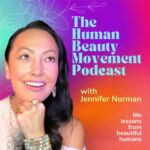
Perhaps the most essential piece of advice you’ll receive over the course of your lifetime is “be confident”. You are important and beautiful, inside and out. Coming to the realization that you are unique can greatly impact your self-confidence, leading to long-lasting health and quality-of-life benefits. After all, self-confidence is the basis for self-love, which fosters light and positivity in all aspects of your life.
Many celebrities, for example, aren’t seen as “conventionally beautiful,” but their attractiveness is amplified due to their over-the-top self-confidence. They’re at the top of their game and exude total confidence. It’s that irrefutable belief in oneself that gives these celebrities that supernatural edge, improving their perceived value and irreplaceability.
For example, Adam Driver became the sex symbol of the new Star Wars Universe when he took off his Kylo Ren mask and oozed confidence. Barbie Ferreira is the only plus-sized actress on Euphoria, but when her character, Kat, walked the school hallways like she owned them, she stole the show. Steven Tyler of Aerosmith rocks his feminine-grunge looks on and off the stage, and while he may not seem conventionally attractive, he’s been lusted after by fans for decades.
Pictured: Top Left, Adam Driver (British GQ), Bottom Left, Steven Tyler (The Guardian), Right, Barbie Ferreira (EW)
There is power in self-confidence. How can you harness yours? I’ll break it down so you can soon start reaping the beautiful rewards that come with expressing your self-love. By first recognizing the confidence you admire in others; you can turn inward to discover your own greatness. In a matter of time, you’ll be the one whose self-confidence inspires those around you.
What Is Self-Confidence?
Self-confidence means trusting in your own judgment, capacities, and abilities. It’s about valuing yourself and feeling worthy, regardless of any imperfections or what others may believe about you. Self-confidence is accepting yourself and having a sense of control in your life. You set realistic expectations and goals, communicate assertively, and handle criticism well.
Self-efficacy and self-esteem are often used interchangeably with self-confidence, but they are subtly different.
We gain a sense of self-efficacy when we see ourselves mastering skills and achieving goals. This encourages us to believe that, if we learn and work hard in a particular area, we’ll succeed. It’s this type of confidence that leads people to accept difficult challenges and keep going in the face of setbacks.
Self-esteem is a more general sense that we can cope with what’s going on in our lives, and that we have a right to be happy. This idea stems, in part, from the feeling that the people in our lives approve of us. Depending on the progress in our particular journey, we may or may not be able to control this, and if we experience a lot of criticism or rejection from others, our self-esteem can easily suffer unless we find other ways in which to give ourselves some support.
Confidence and Behavior
Low self-confidence might make you feel full of self-doubt, be passive or submissive, or have difficulty trusting others. You may feel inferior, unloved, or be sensitive to criticism. Feeling confident in yourself might depend on the situation. For instance, you can feel very confident in some areas, such as academics, but lack self-confidence in others, like relationships.
Take a look at the chart below, which compares self-confident behaviors with behaviors that are often associated with low self-confidence. Which thoughts or actions do you recognize in yourself?
As these examples show, low self-confidence can be debilitating and may manifest itself as negativity. Self-confident people are generally more positive – they value themselves and trust their judgment. However, they also acknowledge their failures and mistakes and learn from them.
Self-Confidence Is Important
Self-confidence can be considered the root of almost every element involved in a happy and fulfilling life. Having real, true self-confidence is important; it’s incredibly difficult to go through life when you don’t trust your own decisions or believe in yourself.
Research has proven the previous statements to be true. It’s shown that confidence isn’t just a word with a magically conjured definition in the effort to help everyone feel better about themselves. Self-confidence is real; it matters, and it can affect every piece of your life.
Self-confidence can:
Lessen Fear and Anxiety
If you’ve suffered from low self-confidence, you’re probably familiar with rumination, or the tendency to mull over worries and perceived mistakes, replaying them ad nauseam. Excessive rumination is linked to both anxiety and depression, and it can make you withdraw from the world.
The more confident you become, the more you’ll be able to calm the voice inside your head that has been holding you back. By filling your body and mind with positive thoughts, you’ll be able to break the cycle of over-thinking and quiet your inner critic.
Additionally, by keeping your fear and anxiety at bay, self-confidence can greatly benefit your health. Studies indicate that confident people tend to be healthier and live longer, which could be due to the positive emotions associated with that confidence, such as happiness, optimism, and satisfaction. Lacking self-confidence often leads to emotions that are associated with negative health effects like fear, depression, and anxiety.
Improve Relationships
There are a handful of reasons why self-confidence matters when it comes to relationships. For example, self-confident people are less dependent on others for assurance and approval. They’re comfortable being themselves, which encourages more honesty in a relationship.
Self-confidence also leads to the ability to maintain healthy boundaries. Since they aren’t as dependent on others for their sense of worth, confident people are less likely to cave to those who don’t respect them.
It might seem counterintuitive, but when you have more self-confidence, you’re less focused on yourself. You’ll enjoy your interactions more without worrying about the kind of impression you’re making, and you won’t be comparing yourself to others. Your relaxed state will put others at ease as well, helping you forge deeper connections.
Self-confidence can also breed deeper empathy. When you’re fully present, you’re more likely to notice that your date seems to be a little down, or that your friend in the corner looks like she needs a shoulder to cry on. When you’re not preoccupied with your own self-doubt, you can be the person who reaches out to help others.
Motivate You
You can find motivation in many forms, but confidence is one of the most important. Building confidence means taking small steps that leave a lasting sense of accomplishment. If you’ve ever learned a language, mastered a skill, reached a fitness goal, or otherwise overcome setbacks to get to where you wanted to be, you’re well on your way.
Self-confidence helps you look back at your previous successes, no matter how small, and use them as fuel for the future. It helps you feel proud of what you’ve accomplished in the past and be hopeful for what you’ll achieve next.
If you think back to a key accomplishment in your life, you’ll likely find that it took a lot of perseverance. If you could triumph through adversity at that moment then you can do it in other areas of your life as well.
As your confidence grows, you’ll find yourself more driven to stretch your abilities. “What-if” thoughts may still arise (What if I fail? What if I embarrass myself?). But with continued practice and growing self-assurance, those thoughts will no longer paralyze you, and working through them will become more natural. You’ll be able to smile and feel more self-assured. Your goals will become more energizing as you strive for them and mentally easier to achieve.
Give You A Stronger Sense of Self
Self-confidence is neither forceful nor arrogant. It’s calm, stable, and flexible. When you are self-confident, you take actions toward creating the life you want, you easily gain support from others when needed, and you become more naturally resilient.
When you become self-confident, you accept your shortcomings, knowing they don’t hinder your self-worth. You also leverage your strengths and use them fully. Self-confidence allows your authentic self to manifest into the world.
With self-confidence, your actions are in line with your principles, giving you a greater sense of purpose. You know who you are and what you stand for. You have the skills to show up, stand up, and speak up. In other words, you let your best self shine through.
Building Your Self-Confidence
Building self-confidence isn’t always easy. An estimated 85% of people worldwide struggle with poor self-confidence and self-esteem. To improve confidence in yourself, there are beneficial habits you can form. This, in turn, can help you gain the self-confidence you seek to fearlessly chase your dreams and be your truest self.
Take some time to reflect on who you are. Ask yourself: Who are you as a person? What are your values? What do you want to accomplish? Very often, we try to fit into the mold of what we think society wants us to be. With that false perception of what we should be, we can never really feel comfortable in our own skin.
Affirmations and mantras are simple yet powerful tools to help you improve your self-confidence. This method of self-talk can be used at any time to reinforce your positive thinking. Even repeating something as simple as “I’m okay!” or “I’m beautiful!” can go a long way.
Write down a few positive affirmations or mantras. Post them on a sticky note, use them as your phone background, or write them with erasable markers on your mirror. This way, you’ll see them daily and be reminded of why you’re exceptional. When you build yourself up with beneficial self-talk, positive thinking will follow.
You can also try out a new look to boost your self-confidence. Wearing different clothes can prompt your mind to think or behave differently. This effect, though, isn’t just limited to feeling good about yourself. In a study where some participants wore a white lab coat while others did not, Dr. Adam D. Galinsky, a professor at Columbia Business School, found that participants wearing the coats exhibited more focused attention than those who were not.
Essentially, when people dressed as a doctor, they behaved more like a doctor, or at least how they thought a doctor might behave. If you want to feel more confident, dress the way a confident version of yourself would. Embrace your quirks and choose an outfit that perfectly sums up your personality.
Stepping outside your comfort zone is another way to improve your self-confidence. While trying new things may seem scary or uncomfortable, Mr. Houpert said that’s the point.
“Self-confidence is ultimately about being comfortable in a wide variety of situations that would make most people feel uncomfortable,” he explained. “So if you stretch your comfort zone every day, very quickly you’ll have a large comfort zone and be able to feel more comfortable even when outside of it.”
This can involve more daunting changes, like taking a new job or mastering a new skill. However, it can also take smaller forms, like striking up a conversation with someone new if you’re normally shy, or trying new types of cuisine. According to Mr. Houpert, it’s more important that you regularly expand your comfort zone rather than occasionally throwing yourself into the deep end.1
As you work on improving your self-confidence, remember that no one is perfect, and everyone makes mistakes. Instead of striving for perfection, show yourself a little compassion. Remind yourself that you are human and that you are doing the best you can in your given circumstances. Self-love is the best love.
Celebrate Small Actions
Affirmations to Boost Your Self-Confidence
Using positive affirmations can improve and greatly boost your self-confidence, while also keeping you motivated to tackle obstacles and pursue your dreams. Affirmations are short, positive statements that reinforce your beliefs or combat negative feelings.
They can be spoken aloud or printed on cards to read when you need a boost. There are a lot of ways to use affirmations, and it ultimately depends on your individual needs.
Here are a few affirmations you can use daily to improve your self-confidence:
“I value myself.”
“I can overcome every obstacle that comes my way.”
“I believe in my abilities.”
“Every challenge I overcome is a success.”
“I have everything I need for success.”
“I am stronger than my fears.”
“I can face every challenge.”
“I don’t need validations from others to know how good I am.”
“Self-deprecation isn’t something I need.”
“I can let go of my insecurities.”
“I can express my emotions.”
“I can express my true self.”
“I can achieve everything I want.”
“When I set my mind on something, I won’t stop until I reach it.”
“I already have everything I need for success.”
“It’s okay to leave my comfort zone.”
“Every challenge is an opportunity to grow.”
“My mood doesn’t depend on other people’s opinions.”
Let’s Work On Self-Confidence Together
Where are you on your self-confidence journey?
Do you have any positive affirmations that helped boost your self-confidence?
We know that real self-confidence can be extremely hard to achieve, but we want to help further your journey. Our door is always open. Feel free to post and comment about the challenges, achievements, or experiences you’ve had recently that have contributed to your self-confidence. The HBM is your home, and together, we can achieve anything.
—
Resources:
https://www.nytimes.com/2019/06/03/smarter-living/how-to-improve-self-confidence.html [1]




















